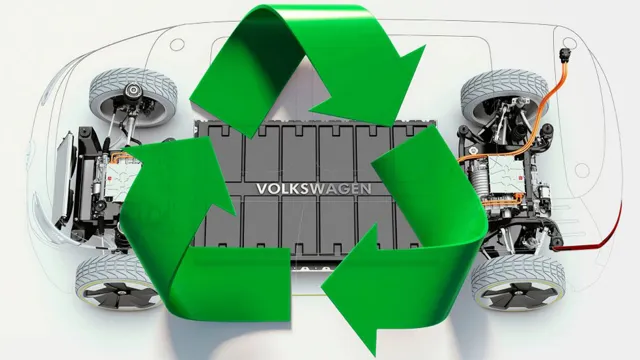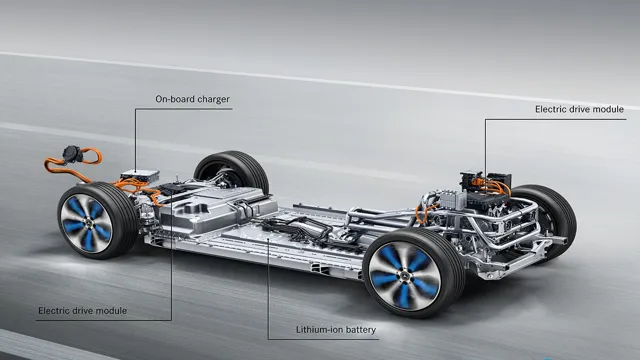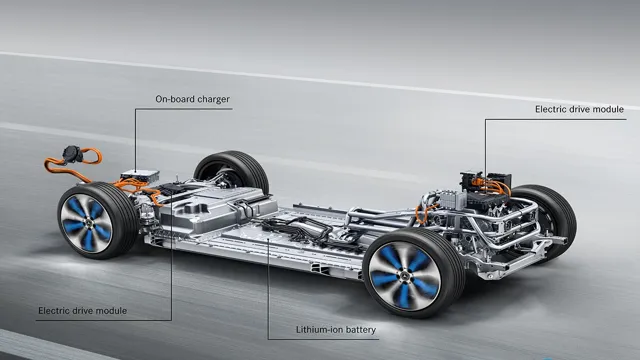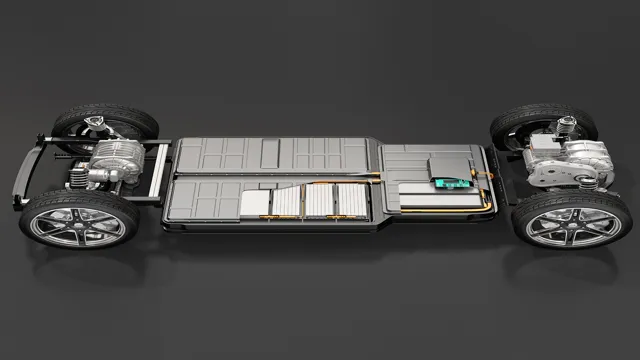10 Important Electric Car Battery Recycling Issues You Need to Know
Have you ever wondered what happens to all the batteries that power our beloved electric vehicles once they reach their end of life? The answer is simple: they need to be recycled. However, there are numerous challenges when it comes to electric car battery recycling, such as the cost, technology, and environmental concerns. In this blog, we will explore the issues related to electric car battery recycling and what we can do to address them.
Let’s dive in and learn more about how we can make the EV industry sustainable.
Environmental concerns
One of the biggest concerns surrounding electric cars is the issue of battery recycling. While these vehicles are more eco-friendly and produce lower emissions than traditional gas-powered cars, their batteries contain a variety of toxic and rare earth materials that can be harmful to the environment if not disposed of properly. This leads to questions about the practicality of recycling these batteries, given the complexity of the process and the potential risks involved.
As these cars become more popular, the demand for battery recycling solutions will continue to rise, and it will be up to manufacturers and policymakers to develop safe and effective ways to handle this important issue. However, it’s worth noting that advances are being made in battery recycling technology, and there are already companies exploring innovative solutions that could help to alleviate some of these concerns. Despite the challenges, it’s clear that electric car battery recycling is an issue that can’t be ignored, and finding a sustainable solution is vital if we want to continue reaping the benefits of these clean energy vehicles.
Impact on lithium supply chain
As the demand for electric vehicles continues to increase, concerns about the environmental impact of the lithium supply chain are on the rise. The process of mining and processing lithium involves extensive water usage and can also lead to soil and air pollution. Many of the countries that are leading lithium producers, such as Chile and Argentina, are facing water scarcity issues, which only exacerbates these environmental concerns.
As a result, there is a growing movement to develop more sustainable and eco-friendly methods for extracting and processing lithium. This includes the use of renewable energy sources in the mining and refining process, as well as the development of closed-loop systems that minimize waste and pollution. As consumers, we can also play a role in creating demand for responsibly sourced lithium and supporting companies that prioritize sustainability in their supply chain.
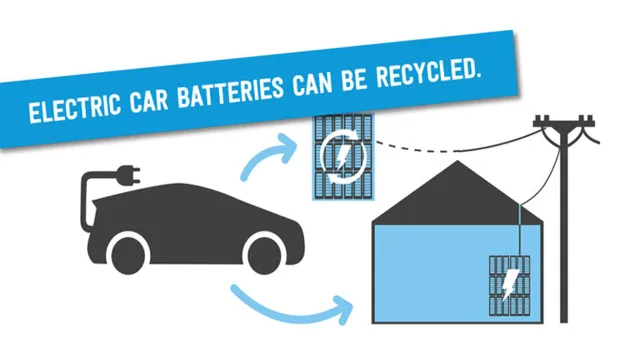
Emerging technologies
Emerging technologies are having a significant impact on environmental concerns, with constant advances being made towards sustainable solutions. One such technology is blockchain, which enables transparency and accountability in supply chains. Blockchain can be used to track the origin of raw materials and ensure that they are sustainably sourced, ultimately reducing carbon footprints and helping to combat deforestation.
Additionally, the rise of renewable energy sources such as wind and solar power is providing an alternative to fossil fuels, and advanced battery technology is making it possible to store energy more efficiently. The advantages of these technologies are considerable, and as they become more widely adopted, we can expect to see a reduction in greenhouse gas emissions and other pollutants. However, it’s important to keep an eye on any potential negative effects that may arise from the use of emerging technologies.
As with any tool, there’s always the potential for misuse, and we must be careful to balance the benefits and risks of any new technology. Overall, though, there’s cause for optimism when it comes to the role of emerging technologies in addressing environmental concerns, and we should continue to explore new and innovative solutions to this urgent problem.
Economic challenges
Electric car battery recycling issues have become a major economic challenge for the automotive industry. As more and more electric cars hit the roads, the demand for batteries has skyrocketed, and with it, the cost of recycling these batteries. Many of these batteries contain toxic chemicals and materials, making it expensive and complicated to dispose of them properly.
Moreover, there aren’t enough facilities to recycle these batteries effectively, which means that many of them end up in landfills or incinerators. This not only poses environmental hazards but also raises concerns about the sustainability of electric cars. In short, while the electric car industry has been growing exponentially, the lack of effective battery recycling solutions has been a major roadblock.
However, researchers are working hard to develop new ways to recycle batteries more efficiently and economically, offering hope for a sustainable future of electric cars.
High cost of recycling
Recycling isn’t just about benefiting the environment; it can also be expensive. Indeed, one of the primary challenges of recycling is the high cost of the process. Recycling requires a considerable amount of labor, energy, and resources to correctly sort, clean, and repurpose the materials.
Additionally, recycling facilities must invest in specialized equipment and technology to handle the different types of waste. All of these costs can add up quickly, making it challenging for recycling facilities to operate profitably. This, in turn, can lead to higher prices for consumers who want to buy recycled products.
While it’s worth the cost to preserve the planet’s health, recycling companies also need to find better ways to keep operating costs down so that recycling can become more cost-effective and accessible.
Competitive global market
In today’s competitive global market, economic challenges have become more prevalent than ever before. As more and more businesses strive to become profitable in a highly competitive environment, there are numerous economic challenges that they must overcome. One of the major challenges companies face is the fluctuation of the global economy.
The economic environment is highly dynamic, and businesses must adjust to the changes if they hope to remain competitive. Another significant economic challenge for businesses is the cost of obtaining resources and raw materials. The global supply chain is complex, and businesses must find cost-effective ways to obtain the resources they need to create their products or services.
Additionally, businesses must ensure that they are minimizing their costs while maintaining high-quality standards. This can be a challenging balance to strike, but it’s essential to remain competitive in the global market. Ultimately, businesses must remain agile and focused on their goals to overcome the economic challenges in today’s competitive global marketplace.
Unavailability of end-market
One of the biggest economic challenges businesses in any industry face is the unavailability of end-markets for their products or services. This is especially true for smaller businesses that don’t have the resources to diversify into multiple markets. When a business is dependent on a single end-market, any disruptions in that market can have devastating consequences.
For example, if a business solely serves the hospitality industry and there is a sudden drop in travel due to a pandemic, that business will likely suffer. It’s important for businesses to identify potential end-markets and diversify their customer base to mitigate the risks of being too dependent on a single market. By doing so, businesses can better withstand economic downturns and disruptions in their industries.
Government regulations
As electric cars become more popular, there are concerns about how to responsibly recycle their batteries once they have reached the end of their life. While companies are working on developing more efficient and sustainable ways to recycle these batteries, there is a need for government regulations to ensure that all batteries are recycled properly. Without these regulations, there is a risk that some batteries will be disposed of improperly, leading to environmental damage and potential health risks.
Implementing strict regulations would not only ensure that these batteries are recycled responsibly, but it would also create jobs and stimulate the economy in the recycling industry. As consumers, we can also do our part by properly disposing of our old batteries and making sure that they are recycled through the proper channels. By taking these steps, we can ensure that electric car batteries are recycled in a responsible and sustainable manner, without harming the environment or our health.
Existing laws and regulations
Existing government regulations play a crucial role in maintaining balance in the economy and protecting consumers’ interests. They are enforced to ensure that businesses operate ethically and do not engage in activities that may harm people or the environment. Some of the areas that are regulated by the government include product safety, labor laws, advertising, environmental standards, and intellectual property rights.
In addition, the government has antitrust laws and regulations that prevent businesses from engaging in monopolistic practices. These regulations ensure that consumers have access to a range of choices and can purchase products at market prices. Apart from these regulations, the government also promotes free competition by offering tax incentives and grants to small businesses.
These initiatives encourage entrepreneurship, leading to job creation and economic growth. Overall, government regulations are essential in maintaining a healthy economic environment and promoting fair competition in the market.
Eco-friendly initiatives by governments
When it comes to promoting eco-friendliness, government regulations play a significant role in enforcing environmentally-friendly initiatives. Many governments have set up regulatory frameworks to ensure companies and citizens comply with eco-friendly guidelines. For example, some governments have imposed taxes on plastic bags and single-use plastic products to reduce their usage.
Similarly, regulations pertaining to emissions and fuel efficiency standards in the automotive industry are also implemented to lower the carbon footprint of vehicles. Further, governments may incentivize the use of renewable energies, such as solar panels and wind turbines, by offering tax credits or subsidies. Overall, these regulations encourage companies and individuals to adopt eco-friendly practices, which in turn helps in minimizing the impact of human activities on the environment.
Conclusion and Future of electric car battery recycling
In conclusion, electric car battery recycling issues may seem like a daunting problem, but with the increase in demand for electric vehicles, it’s a challenge that must be tackled head-on. As the industry develops, new technologies and innovations will certainly arise to address this issue. Who knows, perhaps one day we’ll be powering our homes with old electric vehicle batteries, bringing a whole new meaning to the phrase ‘one man’s trash is another man’s treasure’.
Either way, the future looks bright for electric car battery recycling.”
FAQs
What are the environmental impacts of improper disposal of electric car batteries?
Improper disposal of electric car batteries can lead to the release of harmful chemicals and heavy metals into the environment, potentially contaminating soil and water sources.
How are electric car batteries recycled?
The recycling process for electric car batteries typically involves the recovery of valuable materials such as cobalt, nickel, and lithium from the cells, which can then be repurposed for new batteries and other products.
What challenges exist in the recycling of electric car batteries?
Some challenges in electric car battery recycling stem from the complex nature of the batteries themselves, as well as the lack of established infrastructure and regulations for managing their disposal and recycling.
What steps can consumers take to reduce the environmental impact of their electric cars?
Consumers can take steps such as properly disposing of their old batteries, supporting companies that prioritize sustainability and recycling, and considering the overall lifecycle impact of their vehicle purchases.
